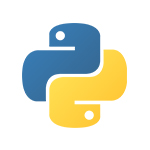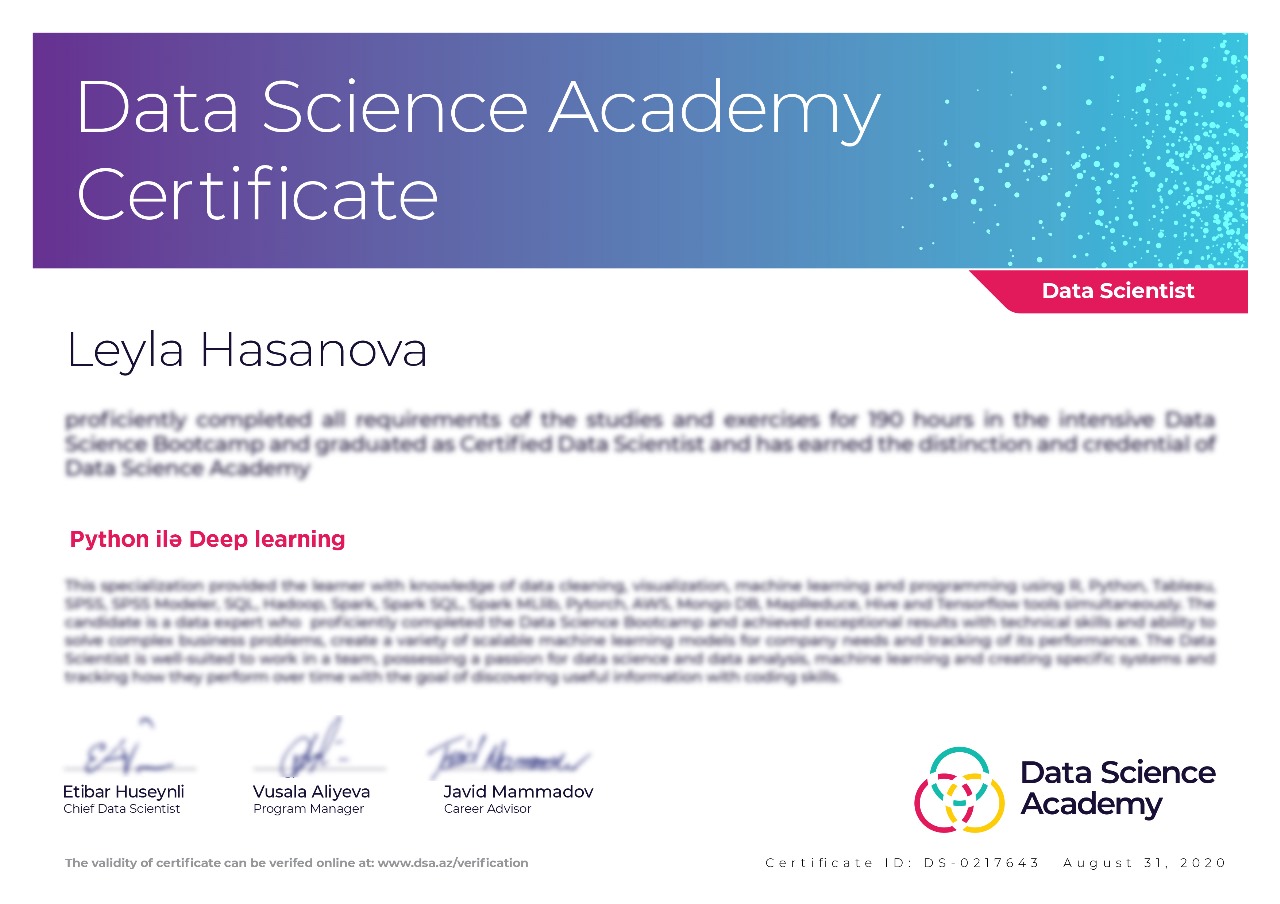
NLP with Deep Learning
In the training program, you will learn how to teach computers to understand and generate text using fundamental NLP methods and algorithms. In a world evolving with the capabilities of machine learning, solutions like **ChatGPT**, which can comprehend text and generate intelligent textual information, have become essential assistants for businesses, government institutions, and individuals alike. This training program will provide you with a solid foundation in **NLP**, covering fundamental concepts, advanced techniques, and practical applications in an easily understandable manner. After completing the course, you will either be equipped with the technical knowledge to launch your own **startup** or work as an **NLP specialist** in a company. If you aspire to join the ranks of scientists contributing to the **magical world of Machine Learning**, this training will serve as the **perfect starting point** for you. 🚀
Training table
Information about the training
In a world where **Artificial Intelligence and Machine Learning** are rapidly expanding, **NLP algorithms** that enable computers to understand and generate text have become widely applied across various fields in recent years. These include **chatbots** capable of responding autonomously in sales, healthcare, and other industries, **sentiment analysis** for monitoring social media, extracting meaningful insights from large volumes of text such as **news, articles, contracts,** and much more. In the **Deep Learning with NLP** training program, you will learn **advanced NLP concepts**, including **Markov Models, Part of Speech Tagging (POS), Named Entity Recognition (NER), and the implementation of CNN and RNN models**. You will gain hands-on experience by applying NLP to real-world cases such as **spam detection, social media sentiment analysis, and text generation algorithms**. Using **Python**, you will develop the skills to implement NLP algorithms with **TensorFlow**, leveraging models such as **RNN, CNN, LSTM**, and more. 🚀
Who is this training for?
- Students
- Software Developers
- Data Science Professionals
- Linguists
- AI Enthusiasts
- Researchers and Academics
Certificate
Those who successfully complete the training will be awarded a Certified Data Scientist certificate, while others will be awarded a participant certificate. You can see a sample certificate on the right.

Deep Learning ilə NLP
Intro to Deep Learning with NLP
IBM Technology
We learn what NLP is and why we need it, as well as how NLP takes unstructured human speech and converts it to structured data that a computer can understand.
Syllabus
Session 1
The Markov Property
Markov Model
Probability Smoothing and Log-Probabilities
Building a Text Classification Model
Language Model
Case Study 1
Text-Based Spam Detection
Session 2
Parts-of-Speech (POS) Tagging
Using Neural Networks for POS Tagging
Parts-of-Speech Tagging Baseline
Parts-of-Speech Tagging Recurrent Neural Network in TensorFlow
HMM for POS Tagging
Parts-of-Speech Tagging Hidden Markov Model (HMM)
Named Entity Recognition (NER)
Comparison of NER and POS Tagging
Named Entity Recognition Baseline
Named Entity Recognition RNN in TensorFlow
Case Study 2
Article Analysis with Named Entity Recognition
Session 3
What is CNN and Convolution?
What is Convolution? (Pattern Matching)
What is Convolution? (Weight Sharing)
Convolution on Colored Images
CNN Architecture
CNNs for Text
Convolutional Neural Network for NLP in TensorFlow
Case Study 3
Sentiment Analysis on Social Media Using CNN
Session 4
RNN - Introduction, Simple RNN / Elman Unit (Part 1)
Implementing RNN Code
RNNs: Paying Attention to Shapes
GRU and LSTM
Text Classification with RNN in TensorFlow
Parts-of-Speech (POS) Tagging in TensorFlow
Named Entity Recognition (NER) in TensorFlow
Exercise: Revisiting CNNs (Advanced)
RNN - Conclusion
Case Study 4
Generating Poetry with Recurrent Neural Networks (RNNs)
Trainers

Emil Mirzəyev
SÜNİ İNTELLEKT VƏ STRATEJİ QƏRARQƏBULETMƏ RESEARCHER, UNİVERSİTY COLLEGE LONDONDr. Emil Mirzayev holds a dual PhD in Economics and Business Administration and is currently engaged in scientific research at the intersection of Artificial Intelligence and Strategic Decision-Making at University College London, one of the world's top universities. He has nearly 10 years of experience with Python and Data Science, and has presented his work at prestigious institutions like MIT, Harvard, and LBS, as well as at numerous international conferences. In Azerbaijan, he has also conducted multiple free workshops on topics related to Machine Learning and AI.

Turqut Abdullayev
AZERCONNECT GROUP-DA ANALİTİKA KOMANDASININ RƏHBƏRİTurgut Abdullayev, with over 5 years of experience in the field of data, currently works as the Head of the Analytics Team at Azerconnect Group. Our trainer is the first and only Azerbaijani to receive the international title of "R Contributor." He was the first to develop the "fast.ai" library in the R programming language, and this integration was supported by the founder of the library, Jeremy Howard.
List of Contributors from Official R Website
His previous work experience includes:
* Head of the Limits Management Department at Kapital Bank
* Senior Data Scientist at Access Bank
He has extensive knowledge of software tools such as R, Python, HTML, SQL, Docker, CI/CD (Github Actions), Git, Markdown, and LaTeX, and has worked as a professional data analyst in various consulting companies. In particular, he has mastered the intricacies of machine learning and artificial intelligence through R programming and always incorporates the latest developments in this field into his training sessions. He is also the author of numerous blog posts in the field.

Əhməd Əhmədov
Senior Data Scientist, Porsche AGAhmad Ahmadov pursued his master’s education in "Data Mining" and "Big Data" at Yonsei University in South Korea. He has more than 10 years of experience in artificial intelligence and data analytics. He has been working at Porsche AG in Germany for 6 years as a Senior Data Scientist and Tech Lead. He is mainly responsible for the development of AI models and project management in fields such as "GenAI," "Digital Assistants," "Customer Mobility Predictions," "Charging Experience Optimization," and "Content Quality Analysis."
His previous professional experiences include:
* Dresden University (Germany): Scientific Researcher in AI and Data Science. Research areas: "Data Imputation," "Data Quality," "Information Retrieval," "Web Tables," "Semi-Structured Datasets," and "Machine Learning." (4 years)
* Bakcell: ERP Technical Analyst. (1 year)
Additionally, he is the author of numerous scientific articles published at various international conferences.